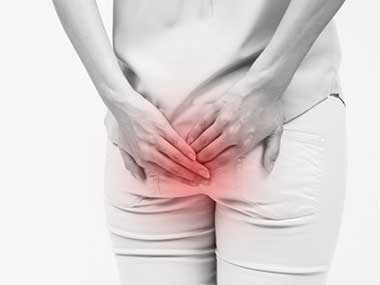 Wirral Surgeon
Excellence for Life
Wirral Surgeon
Excellence for Life
Condition treated
The most important point to remember is that everyone with a bowel problem can be helped and many can be completely cured.
It is never too late to get help with your bowel problems. If you would like some advice on how to approach your GP regarding your bowel problem do get in touch.
About Pruritus Ani
Pruritus ani is itching around the opening of the back passage (the anus). It is a common symptom and occurs more often in men than in women. It causes a strong desire to scratch the area, which often makes things worse.

Causes
In many patients no specific cause can be identified. The most common conditions associated with pruritus ani are:
Investigations
A thorough local clinical examination by an experienced specialist is generally sufficient to exclude any significant causes of pruritus ani.
Proctoscopy (examination of the anus with a small instrument) is often performed to examine the inside walls of the back passage.
Stool samples are useful in identifying parasitic or other infections.
Biopsies or skin scrapings are sometimes needed to exclude a significant lesion such as cancer or skin condition.
Treatment
The ultimate goal of treatment is to create dry, healthy, and intact skin.
Medications that thicken stool and create a formed bowel movement minimize leakage or seepage and allow for complete evacuation. Most people can benefit from taking a fibre supplement (Easyfibre, Psyllium husk powder, Metamucil etc). This can be taken in powder or capsule/tablet form, once or twice daily. If stools still remain loose, additional medications may be helpful. Loperamide (Imodium) is an antidiarrheal agent which can thicken or firm stool and help decrease seepage.
Dietary changes are often necessary. There are several common foods and beverages including coffee, colas, tea, chocolate, tomatoes and beer that are related to pruritus ani. Avoiding overuse of these items may improve symptoms. It may be helpful to remove one item at a time from the diet for several weeks. If symptoms improve, one could try reintroduction of the item in smaller volume and see if there is a limit without producing symptoms.
It will also be important to modify bowel hygiene or cleaning habits. It must be stressed that the anus does not need to be scrubbed or sterilized. Cleaning with plain water rinses is quite helpful. Soaps, perfumes, dyes in tissue or clothing, and baby wipes containing deodorants should be avoided because they can act as irritants. Bathing with Dove® soap is recommended, as it is free of conventional soap; handheld detachable shower heads can be used to clean and wash away any remaining soap residue. The same effect can also be created with a bidet.
The skin can be dried after cleansing using a hair dryer on low setting. An athlete’s foot powder can also be used to absorb moisture after drying, and a small piece of cotton can be placed between the buttocks and against the anus to help absorb the moisture. Tight fitting, synthetic undergarments should be avoided.
One of the most important aspects of the management of pruritis ani is to avoid trauma to the skin. This means no scratching with hands or dry toilet paper, but is often very difficult to achieve, due to the intense desire to scratch. Many people also scratch during sleep and are not aware of it until they wake to find themselves scratching. It is often recommended to have patients cut their nails and to wear a pair of cotton gloves on their hands at night so they are not able to scratch.
In order to control symptoms, a short course of a steroid ointment may be tried. A weak topical steroid such as 1% hydrocortisone cream used two to three times a day for a short period of time can be effective in relieving symptoms of pruritis. A long-acting topical steroid such as betamethasone may also be effective. Strong steroids or prolonged use can lead to skin atrophy (weakness and thinning) which sometimes worsens pruritis ani.
A skin barrier cream such as zinc oxide may also be helpful in protecting the skin around the anus from irritants. Additional topical agents such as menthol, phenol, camphor, or a combination of them may be helpful.
If there is any concern that there may be an infection, topical antibiotics (gentamicin, clindamycin, or bacitracin) or antifungals (clotrimazole, nystatin) may be added in conjunction with other therapies.
For a small number of patients, pruritis ani can be quite difficult to manage, and it may be difficult to completely relieve their symptoms. In these patients, it may be beneficial to try topical Capsaicin. It is believed to work by depressing the feelings or desensitizing certain nerves. The medicine is applied with a very low concentration of 0.006%.
A very small number of patients find only minimal relief from all attempted treatment options. These individuals may benefit from injectable therapy. Methylene blue is a dye which can be injected into the skin and may relieve symptoms by causing destruction of the nerve endings. The methylene blue can be mixed with topical anesthetics and injected into and below the affected perianal region. Many patients do experience a change in sensation in the injected area; it will also turn the skin in the area blue. In very rare cases, if it is injected too close to the surface of the skin it may cause some skin breakdown or ulcerations.